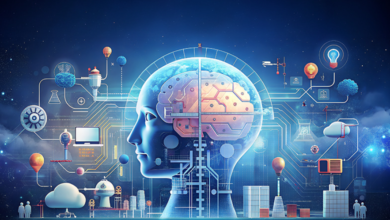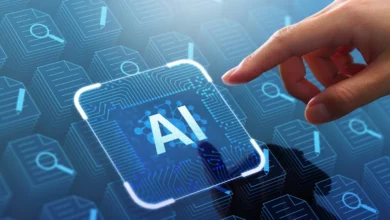Top 10 Emerging Technologies That Will Change the World

Introduction to Emerging Technologies
In today’s fast-paced world, emerging technologies are shaping the future with unprecedented speed. These cutting-edge innovations are not only transforming industries but also redefining how we live, work, and interact. Understanding these technologies helps individuals, businesses, and governments prepare for the exciting changes ahead.
Why Emerging Technologies Matter
Emerging technologies carry the power to solve complex global challenges—from healthcare to climate change—while unlocking new economic opportunities. They drive innovation, improve efficiency, and create smarter, more sustainable societies.
See also: How Technology is Transforming Everyday Life: Key Innovations Explained
1. Artificial Intelligence (AI) and Machine Learning
Artificial Intelligence (AI) and Machine Learning are revolutionizing industries by enabling machines to simulate human intelligence. AI powers applications like speech recognition, predictive analytics, and autonomous systems, helping businesses optimize operations and improve user experiences.
Key Benefits:
- Automates routine tasks
- Enhances decision-making
- Enables personalized services
AI’s future lies in advancing natural language processing and deep learning, making it integral in healthcare, finance, and beyond.
2. Quantum Computing
Quantum computing harnesses the strange laws of quantum mechanics to solve complex problems exponentially faster than traditional computers. This technology promises breakthroughs in cryptography, materials science, and drug discovery.
Why It Matters:
- Potential to solve previously intractable problems
- Speeds up data analysis in various sectors
- Could redefine cybersecurity
Though still in early stages, giants like IBM and Google are making significant strides in quantum research.
3. 5G and Beyond: The Future of Connectivity
5G networks offer lightning-fast speeds, ultra-low latency, and the ability to connect billions of devices simultaneously. This will accelerate the growth of the Internet of Things (IoT), smart cities, and augmented reality applications.
Benefits:
- Real-time data transfer
- Supports autonomous vehicles and smart infrastructure
- Enables immersive AR/VR experiences
Future 6G networks are already on the horizon, promising even more transformative connectivity.
4. Blockchain and Decentralized Finance (DeFi)
Blockchain technology ensures secure, transparent digital transactions through decentralized ledgers. It is the backbone of cryptocurrencies and has introduced Decentralized Finance (DeFi), revolutionizing traditional financial services.
Applications:
- Transparent supply chain management
- Digital identity security
- Peer-to-peer financial services without intermediaries
Despite regulatory and scalability challenges, blockchain’s potential is immense.
5. Biotechnology and Genetic Engineering
Recent advances in biotechnology and genetic engineering, such as CRISPR gene-editing, enable precise manipulation of DNA. This opens new possibilities in healthcare, agriculture, and bioenergy.
Impacts:
- Personalized medicine tailored to individual genomes
- Disease-resistant crops and sustainable agriculture
- Biofuel production for greener energy
Ethical considerations remain critical as these technologies evolve.
6. Autonomous Vehicles and Advanced Robotics
Self-driving cars, delivery drones, and robots are transforming transportation and manufacturing. These technologies improve safety, reduce costs, and increase operational efficiency.
Highlights:
- AI-powered navigation systems
- Automation in warehouses and factories
- Robotics in healthcare and emergency response
Challenges include regulatory frameworks and public acceptance.
7. Augmented Reality (AR) and Virtual Reality (VR)
AR and VR technologies blend the digital and physical worlds, providing immersive experiences in gaming, education, training, and remote collaboration.
Key Uses:
- Virtual classrooms and remote learning
- Training simulations for high-risk professions
- Enhanced entertainment and social interaction
Improvements in hardware and software will drive widespread adoption.
8. Renewable Energy Technologies
Innovations in solar, wind, and advanced nuclear power aim to reduce reliance on fossil fuels and combat climate change.
Advances Include:
- Highly efficient perovskite solar cells
- Grid-scale battery storage solutions
- Decentralized energy systems
Renewables are central to creating a sustainable future.
9. Internet of Things (IoT) and Smart Cities
IoT connects everyday objects to the internet, enabling smarter homes, traffic management, and public safety systems. Smart cities use this data to optimize resources and improve citizens’ quality of life.
Benefits:
- Energy-efficient buildings and streetlights
- Real-time traffic and pollution monitoring
- Enhanced emergency response
Privacy and data security are key concerns.
10. Space Exploration and Commercialization
Commercial space ventures are opening new frontiers for satellite communication, space tourism, and extraterrestrial mining.
Milestones:
- Reusable rockets lowering space access costs
- Mars and lunar missions for human colonization
- Satellite constellations providing global internet coverage
Space is becoming the next arena for technological innovation.
Impact on Healthcare
Emerging technologies are revolutionizing healthcare through telemedicine, AI-powered diagnostics, personalized treatment, and advanced prosthetics—improving patient outcomes globally.
Impact on Education
Virtual classrooms, AI tutors, and interactive AR/VR tools democratize education, making learning more accessible and engaging.
Impact on Environment and Sustainability
Smart technologies enable better resource management, pollution tracking, and climate modeling, contributing to global sustainability efforts.
Economic Implications of Emerging Technologies
While fostering innovation and growth, these technologies also present workforce challenges, requiring reskilling and adaptation to new job landscapes.
Challenges and Ethical Considerations
Issues such as AI bias, data privacy, and ethical use of genetic editing highlight the need for responsible innovation and strong governance.
How to Prepare for a Technology-Driven Future
- Commit to lifelong learning and digital literacy
- Encourage innovation-friendly policies
- Promote ethical and inclusive technology use
Top Industries to Watch
- Healthcare
- Finance
- Manufacturing
- Transportation
- Agriculture
Government and Policy Influence
Government action is critical in shaping funding, regulation, and standards to foster safe and equitable technological progress.
Global Collaboration and Innovation
Cross-border partnerships accelerate technology development and help ensure equitable benefits worldwide.
Role of Startups and Entrepreneurs
Startups often drive disruptive innovation, while collaboration with established firms helps scale solutions.
Future Predictions Beyond 2030
Expect deeper AI-human integration, expanded space habitats, and breakthrough sustainable energy technologies to redefine human life.
FAQs about Emerging Technologies
Q1: What defines an emerging technology?
Emerging technologies are new or evolving innovations with the potential to disrupt markets and society.
Q2: How will AI impact jobs?
AI will automate repetitive tasks but also create roles focused on creativity, strategy, and complex problem-solving.
Q3: Are there risks with quantum computing?
Yes, especially in breaking current encryption systems, requiring development of quantum-safe security.
Q4: How do blockchain and cryptocurrencies relate?
Cryptocurrencies rely on blockchain as a secure, decentralized ledger for transactions.
Q5: What challenges do renewable energies face?
Main challenges include energy storage, grid integration, and initial infrastructure costs.
Conclusion
The top 10 emerging technologies outlined here are not just innovations; they are transformative forces shaping our collective future. From AI and quantum computing to renewable energy and space exploration, these technologies promise to revolutionize how we live and work. Embracing and responsibly guiding these advancements will ensure a prosperous, equitable, and sustainable world for generations to come.
Stay informed and ready—these technologies are the keys to tomorrow’s success.






